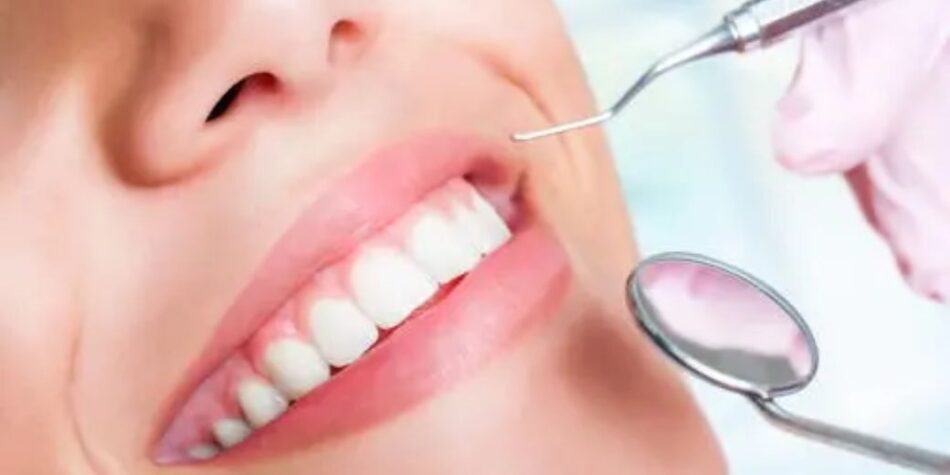Chipping a tooth can be a surprising and stressful experience. One moment you’re biting into a piece of toast or ice cube, and the next you’re feeling a jagged edge with your tongue. Whether it’s a visible chip at the front or something less noticeable, a damaged tooth is always worth paying attention to — even if there’s no immediate pain. The good news? Most chipped teeth can be repaired quickly and effectively with the right dental care.
What Causes Teeth to Chip?
Your teeth are remarkably strong, but they’re not indestructible. Over time, daily wear, certain habits, and sudden accidents can make them vulnerable. Common causes of chipped teeth include biting down on hard foods like popcorn kernels, ice, or boiled sweets. Using your teeth as tools to open bottles or tear packaging can also lead to chips and cracks.
Another major factor is grinding or clenching, especially at night — a condition known as bruxism. This puts pressure on your teeth over time and wears away the protective enamel. Weak enamel caused by acid erosion, untreated cavities, or past dental work can make chipping even more likely.
When Should You See a Dentist?
Any time a tooth chips, it’s best to get it looked at, even if there’s no pain. Chips can create small openings that make your tooth more vulnerable to decay or infection. A dentist will be able to assess how deep the chip is and recommend the most appropriate fix.
If you’re in pain, if the tooth has a sharp edge, or if a large part of it has broken off, don’t wait. Book a visit with a Dentist in North London to prevent the issue from getting worse. Timely treatment can mean the difference between a quick cosmetic fix and needing more involved dental work later on.
Repairing Chipped Teeth: What Are Your Options?
The right solution depends on how big the chip is and where it’s located. For minor chips, your dentist may simply smooth out the rough edge or use a bit of composite resin to restore the shape. This is quick, painless, and usually doesn’t require anesthesia.
For more noticeable or moderate chips — especially on front teeth — composite bonding North London is one of the most popular treatments. This involves sculpting a tooth-coloured resin onto the chipped area and hardening it with a UV light. The result looks natural and blends perfectly with your existing tooth.
Why Choose Composite Bonding?
Composite bonding in North London is an excellent choice for patients looking to restore their smile with minimal fuss. The procedure is typically done in one appointment, with no drilling or removal of natural tooth structure. It’s also budget-friendly compared to veneers or crowns, and lasts several years with good care.
Bonding is ideal for small to medium chips, especially if they’re on front teeth. Your dentist will match the resin to your natural tooth shade, so no one can tell you had any work done. It’s fast, effective, and doesn’t involve any discomfort.
What If the Damage Is More Severe?
In cases where a large part of the tooth is missing, or if the damage exposes the inner pulp (where the nerves are), more comprehensive treatment may be needed. This could include a crown, a veneer, or even a root canal if the nerve has been affected.
Larger chips that reach the chewing surface or back teeth may also compromise your bite. Leaving them untreated could cause uneven pressure, cracks in surrounding teeth, or pain in the jaw. That’s why it’s important to act quickly — the sooner you treat it, the simpler the solution.
What to Do Immediately After Chipping a Tooth
If you chip a tooth, rinse your mouth with warm water to remove debris. If you’re bleeding, apply gentle pressure with a clean gauze or cloth. Avoid chewing on that side of your mouth and steer clear of hot, cold, or sugary foods, which can cause sensitivity.
Over-the-counter painkillers like paracetamol or ibuprofen can help if there’s discomfort. If the chip has created a sharp edge, you can cover it temporarily with dental wax (available at pharmacies) to protect your tongue and cheek until you see a dentist.
Can a Chipped Tooth Be an Emergency?
Absolutely — especially if there’s pain, swelling, or bleeding. If a large section of the tooth has broken off, or if you’re experiencing intense sensitivity or signs of infection, don’t delay. You may need to see an Emergency Dentist in North London for immediate relief and treatment.
Quick intervention can prevent complications like abscesses, nerve damage, or the need for extraction. It also improves the chances of saving and restoring the tooth fully.
How to Prevent Chipped Teeth in the Future
Preventing chips starts with everyday care. Avoid chewing on ice, pens, or fingernails. If you grind your teeth, especially at night, a custom-fitted night guard can protect your enamel. Always wear a mouthguard if you’re playing contact sports.
Regular dental check-ups are key. A Dentist in North London can spot signs of wear, decay, or enamel erosion before they lead to chipping. They’ll also help keep your existing dental work in good condition and advise on ways to protect your teeth long-term.
Final Thoughts
Chipped teeth might be common, but they’re not something to ignore. Whether it’s a small cosmetic issue or a painful break, modern dentistry offers solutions that are fast, affordable, and virtually invisible. The key is acting early and choosing the right treatment for your situation.
If you’ve chipped a tooth and want to restore your smile quickly and comfortably, book a consultation with The Finchley Dentist — expert care is just around the corner.







